.jpg)
On this page, you will find an overview of some of the contributions made by the Norwegian Veterinary Institute through projects established in collaboration with Norad – the Norwegian Agency for Development Cooperation.
You will also find information about the Veterinary Institute's reference functions and roles related to WOAH – the World Organisation for Animal Health.
Norway is committed to international collaboration to achieve the UN Sustainable Development Goals by 2030. Contributing to better and more stable solutions for preventing and detecting health threats is a central priority in the Norwegian Veterinary Institute's international strategy. The institute contributes to research, diagnostics, and development support in terrestrial and aquatic ecosystem projects worldwide.
The Veterinary Institute is an active partner, collaborating on projects in more than 75 countries across Africa, Asia, Europe, and South America. The institute also works with the Food and Agriculture Organization (FAO) to develop a concept for the Progressive Management Pathway for Aquaculture Biosecurity.
Norad's Knowledge Bank
Norad's Knowledge Bank aims to enhance the authorities' capacity and competence within areas where Norway has expertise and is in demand internationally. The Norwegian Veterinary Institute and Norad have a framework agreement for knowledge collaboration to strengthen Norway's development aid efforts within animal and fish health and food safety.
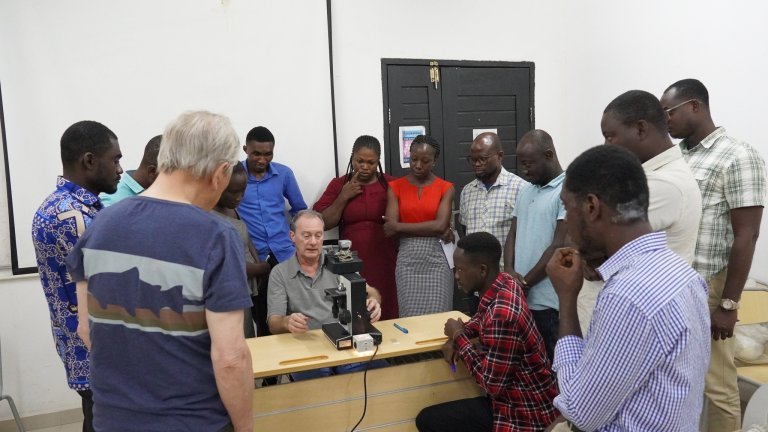
As a partner with Norad's Knowledge Bank, the Norwegian Veterinary Institute aims to contribute to projects that Norad establishes abroad. The institute is involved in several international Norad-funded collaboration projects in various countries across Africa, Asia, and Latin America. The goal is to improve competence, capacity, and management of aquatic animal health and welfare. The institute contributes with scientifically based advice, diagnostics, epidemiology, risk assessments, biosecurity and contingency planning.
Fish for Development
Norad's Fish for Development program has a long-term commitment to areas such as aquaculture development, and the Norwegian Veterinary Institute has been involved in several projects, including in Ghana, Colombia, Indonesia, and Vietnam, as well as with the UN's Food and Agriculture Organization (FAO).
Through the projects in Ghana, Aquatic Animal Health Africa (AHA), and Aquatic and Environmental Health (AquaHem), partnerships have been established between the Norwegian Veterinary Institute, the University of Ghana, Kwame Nkrumah University of Science and Technology (Ghana), and the University for Development Studies (Ghana). The goal of this partnership is to enhance the country's efforts within fish health management.
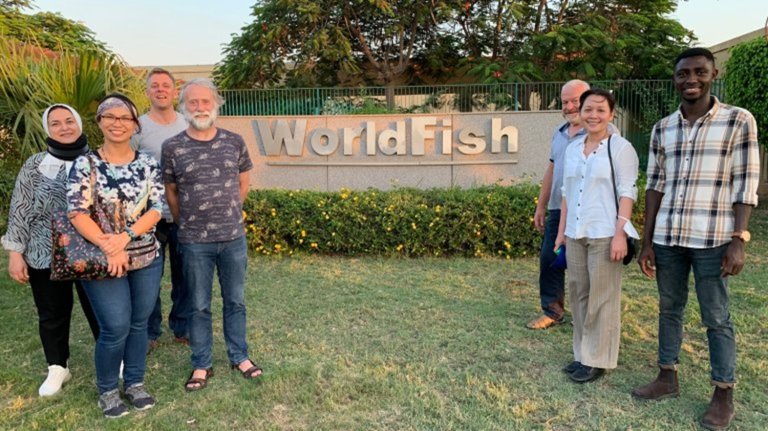
The Norwegian Veterinary Institute and WorldFish have collaborated to organize courses and training in fish health at the WorldFish Center in Abbassa, Egypt. The course was part of the "Aquatic Animal Health" project, a Norad-funded initiative aimed at increasing sustainability in the aquaculture sector in sub-Saharan Africa.
- Rabies Project in Malawi: Aims to strengthen the One Health system in the country for more effective rabies control. Read more here.
- One Health Education in Ethiopia and Malawi: Focuses on building One Health expertise at the university level. Read more here.
- Funded under an agreement between Norad and the institute: One Health – Controlling Zoonotic Diseases and Antibiotic Resistance (AMR) in the Milk Value Chain in Malawi, Ethiopia, and Tanzania". Read more here.
- Read more here.
- Participation in Norad’s "Fish for Development" Program: Focused on fish health management in Ghana and Colombia. Read more here.
- Increased Knowledge of AMR in Tanzania: Using a One Health approach to reduce the development and spread of antimicrobial resistance. Read more here.
- Collaboration with WorldFish: Working on fish health, epidemiology, and health economics in sub-Saharan Africa and South Asia. Read more here.
- Aquatic Animal Health (AHA) Project: A Norad-funded project to support sustainable aquaculture development in Africa. Read more here.
- Collaboration with the Food and Agriculture Organization (FAO): Developing the concept for the Progressive Management Pathway for Aquaculture Biosecurity.
- Leadership in NASCO’s G. Salaris Working Group: Efforts to combat salmon-related issues through the North Atlantic Salmon Conservation Organization. Read more here.

WOAH Reference Function - International Reference Laboratory
The Norwegian delegate to WOAH is the Chief Veterinary Officer (CVO), who is based in the Norwegian Food Safety Authority.
WOAH's Collaborating Centres
WOAH maintains a network of collaborating centers to provide scientific expertise and support to WOAH and its members, while fostering international collaboration in animal health and welfare. These centers are designated for specific areas of focus. The Norwegian Veterinary Institute is WOAH's collaborating center for epidemiology and risk assessment of aquatic animal diseases (Europe). Additionally, it is part of WOAH's European Collaborating Centre for Economics of Animal Health (CCEAH).
WOAH's European Collaborating Centre for Economics of Animal Health
There is a growing need for collaboration and knowledge development to create effective analytical tools. The Norwegian Veterinary Institute is part of the CCEAH, with main partners being the University of Liverpool and Utrecht University. The institute's primary focus is initially on aquaculture.
Furthermore, the institute participates in the global initiative Global Burden of Animal Diseases (GBADs) under WOAH, which parallels the Global Burden of Diseases (GBDs) framework of the World Health Organization (WHO).
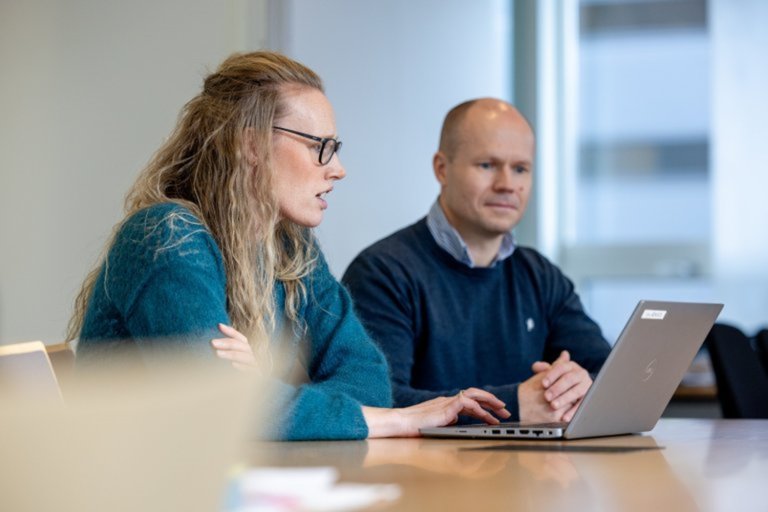
Contact Person for WOAH's Collaborating Centre at the Norwegian Veterinary Institute
- Epidemiology and Risk Assessment of Aquatic Animal Diseases (Europe) – Saraya Tavornpanich
- Economics of Animal Health – Cecilie Sviland Walde
Reference Laboratories
WOAH maintains a network of reference laboratories, and the Norwegian Veterinary Institute holds four reference laboratory functions for the following: Chronic Wasting Disease (CWD) in cervids, Gyrodactylus salaries, Infectious Salmon Anaemia Virus (ISAV) and Salmonid Alphavirus (SAV)
As a reference laboratory, the Norwegian Veterinary Institute collaborates globally to confirm diagnoses and exchange knowledge in diagnostics, pathology, and epidemiology.
As a WOAH reference laboratory, the institute is tasked with researching to advance the understanding, diagnosis, prevention, and control of these diseases. Experts at the institute are leading researchers who provide scientific and technical assistance, as well as expertise in diagnostics and disease control.
Additionally, the Norwegian Veterinary Institute offers scientific and technical training for personnel from member countries, including laboratory partnership programs and support for scientific and practical studies in collaboration with other laboratories.
Contact Persons for WOAH Reference Laboratories at the Norwegian Veterinary Institute:
- Chronic Wasting Disease (CWD) - Sylvie Benestad
- Gyrodactylus salaris - Haakon Hansen
- Infectious Salmon Anaemia Virus (ISAV) - Ole-Bendik Dale
- Salmonid Alphavirus (SAV) - Hilde Sindre
WOAH's Expert Commissions
WOAH has four expert commissions:
- Aquatic Animal Health Standards Commission (AAHSC)
- Biological Standards Commission (BSC)
- Scientific Commission for Animal Diseases (SCAD)
- Terrestrial Animal Health Standards Commission (TAHSC)
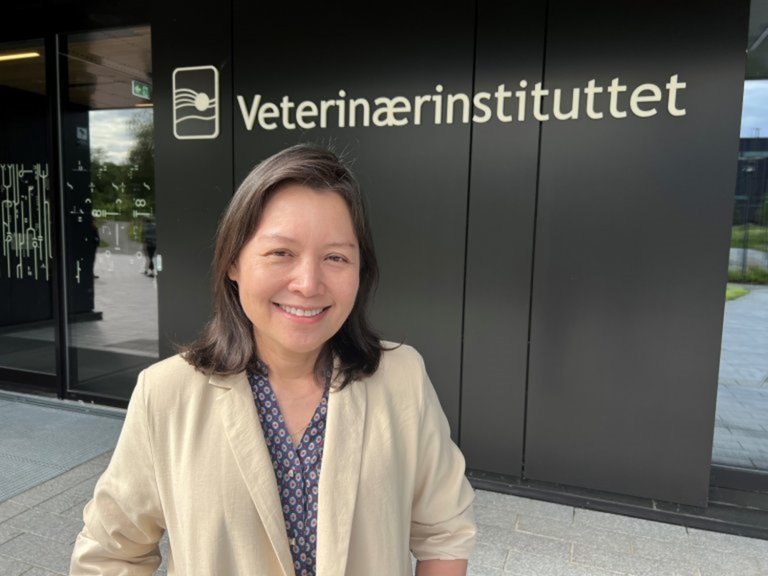
In 2024, Saraya Tavornpanich was elected as a member of WOAH's Aquatic Animal Health Standards Commission (AAHSC). The Commission has six members, each serving a three-year term.
The work of WOAH's Specialist Commissions is crucial for achieving the organization's strategic objectives. These four commissions play a key role in developing and revising WOAH's international standards. They collaborate with WOAH's global scientific network, providing advice on epidemiology, prevention, and control of animal diseases. Additionally, they address scientific and technical issues and are responsible for the official recognition of animal health status.
In addition to serving as a WOAH Reference Laboratory, the Norwegian Veterinary Institute is also a WOAH Focal Point. This role involves engaging in dialogue with authorities, collecting and reporting data to WOAH, and acting as a contact point for WOAH on issues within the relevant field.
The Chief Veterinary Officer (CVO) nominates contact persons (focal points) to support their work on specific issues. These focal points primarily aim to improve communication between member countries and WOAH. Their responsibilities include establishing networks and enhancing communication at the national level.
The Norwegian Veterinary Institute has two designated WOAH focal points: one for wildlife and one for veterinary laboratories.
Contact Persons for WOAH Focal Points at the Norwegian Veterinary Institute:
- Veterinary Laboratories: Anna Germundsson Hauge
- Wildlife: Jørn Våge
One Health
There is an interdependence between the health of humans, animals, and the environment, where the health of one affects the health of the others. Human activities affect the health of animals and the environment, and diseases in animals or the environment, affect human health. Humans and animals share and exchange pathogens, and environmental changes affect this dynamic. Balanced ecosystems are essential for sustainable food production and for the world's ability to support the growing global population.
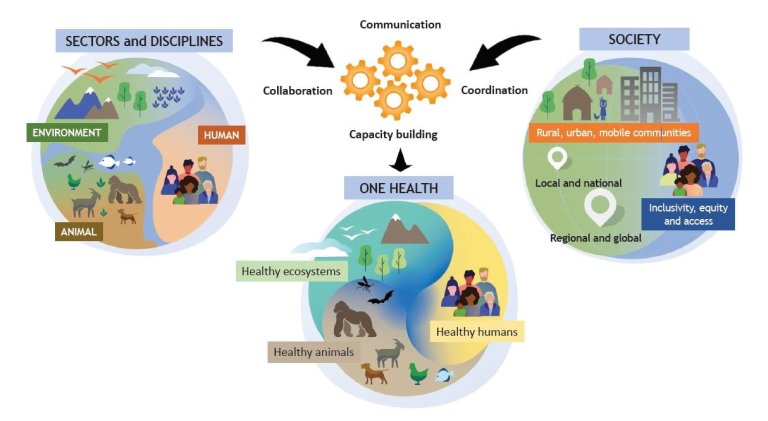
The One Health concept recognizes the complex interactions between humans, animals, and the environment and the importance of balanced relationships for the health and well-being of all. It emphasizes the significance of interdisciplinary collaboration to understand health challenges, solve problems, and achieve optimal health for all parties.
.jpg)
The Norwegian government has emphasized the One Health perspective in recent years, highlighting how important it is to view the health of people, animals, and the environment as interconnected. It is a global and national responsibility to establish systems that integrate the One Health perspective into practical work across all relevant fields. This requires political will, expertise, and functional collaboration platforms across disciplines, organizations, and nations.